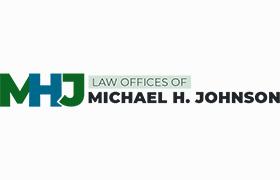Pahokee Reorganization Lawyer, Florida, page 4
Sponsored Law Firm
-
 x
x

Click For More Info:
-
Law Offices Of Michael H. Johnson, P.A.
3601 W. Commercial Blvd Suite 31 Fort Lauderdale, FL 33309» view mapBankruptcy & Debt Experienced Legal Guidance
I know how important getting out of debt can be, and I’m committed to providing innovative, effective solutions to help you have a brighter future.
800-773-6441
Not enough matches for Pahokee Reorganization lawyer.
Below are all Pahokee Bankruptcy & Debt lawyers.
Adam David Marshall
Commercial Bankruptcy, Reorganization, Business, Bankruptcy
Status: In Good Standing *Status is reviewed annually. For latest information visit here
Jeffrey Joseph Begens
Animal Bite, Bankruptcy & Debt, Divorce & Family Law, Real Estate
Status: In Good Standing *Status is reviewed annually. For latest information visit here Licensed: 38 Years
Stacey Laura Degiulio
Bankruptcy, Criminal, Family Law, Wills, Health Care
Status: In Good Standing *Status is reviewed annually. For latest information visit here Licensed: 22 Years
Douglas Edward Yorke
Credit & Debt, Civil Rights, Family Law, Trusts
Status: In Good Standing *Status is reviewed annually. For latest information visit here Licensed: 49 Years
George J Schriefer
Bankruptcy, Corporate, Elder Law, Family Law
Status: In Good Standing *Status is reviewed annually. For latest information visit here Licensed: 51 Years
Evelyn Marie Pennington
Divorce & Family Law, Criminal, Bankruptcy, Accident & Injury
Status: In Good Standing *Status is reviewed annually. For latest information visit here Licensed: 26 Years
Bruce Douglas Macgibbon
Bankruptcy & Debt, Government, Real Estate
Status: In Good Standing *Status is reviewed annually. For latest information visit here Licensed: 41 Years
Steven Herbert Friedman
Bankruptcy
Status: In Good Standing *Status is reviewed annually. For latest information visit here Licensed: 48 Years
Jeffrey Marc Siskind
Bankruptcy & Debt, Consumer Rights, Divorce & Family Law, Collection
Status: In Good Standing *Status is reviewed annually. For latest information visit here Licensed: 28 Years
Norman L. Schroeder
Corporate, Contract, Bankruptcy, Credit & Debt, Civil & Human Rights
Status: In Good Standing *Status is reviewed annually. For latest information visit here Licensed: 47 Years
 Michael Johnson Fort Lauderdale, FL
Michael Johnson Fort Lauderdale, FL AboutLaw Offices Of Michael H. Johnson, P.A.
AboutLaw Offices Of Michael H. Johnson, P.A.